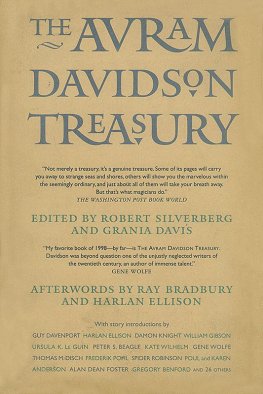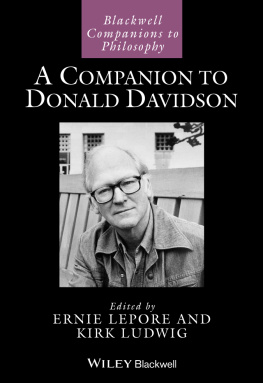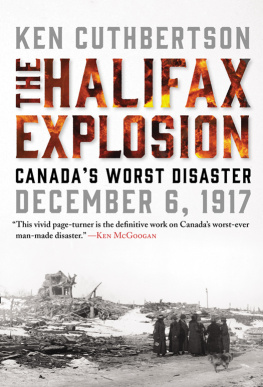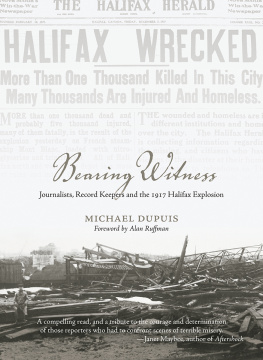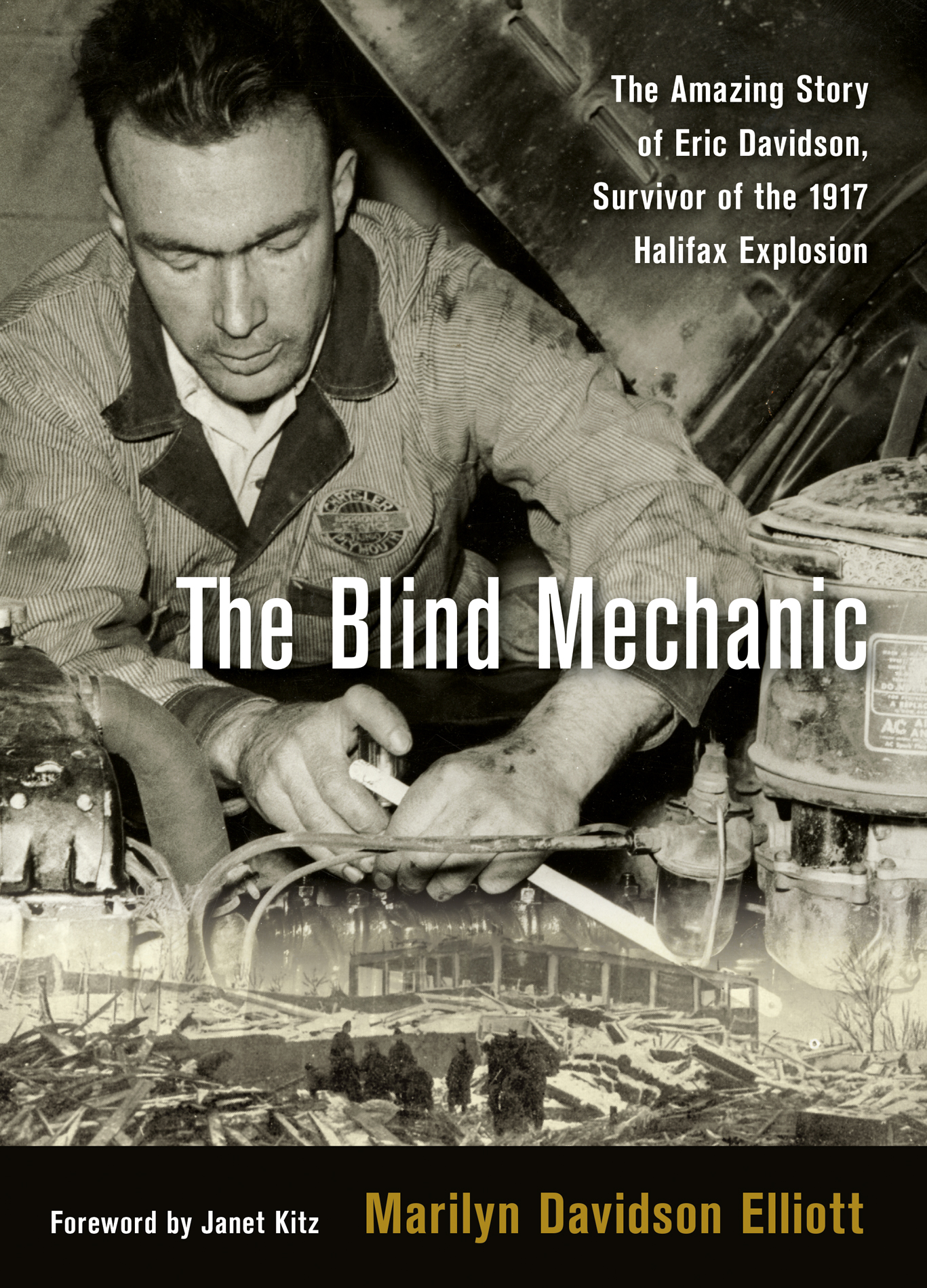Foreword
Eric Davidson was introduced to me by his older sister, Marjorie, who attended many of the events held for survivors of the Halifax Explosion. There was obviously great affection between the two of them. Already knowing the cause of Erics blindness, I was immediately impressed by the way he coped with it. There was no sign of self-pity or even blame for its cause.
At later social occasions, like tea parties, Eric was usually there, and managed without too much difficulty. He carried himself with his head slightly to one side, as if he were listening intently. Sound and touch were important for him.
One day he and I went walking in Point Pleasant Park. To my astonishment, he could identify fairly precisely where we were at any point. The Quarry Pond must be there, he said. A little further on, he pointed to the other side, The Martello Tower will be just up that little road.
The Halifax Relief Commission had been formed to restore the area affected by the Explosion and to disburse relief funds in the best possible manner. These funds had to cover pensions as long as any pensioner remained alive. The commission donated $100,000 for the building of the North End Library on Gottingen Street, a memorial to those lost in the Explosion.
Eric, in common with many other survivors, did not approve of this type of expenditure. The money was meant to help the people who had suffered, he said, not to put up buildings. Some money had already been spent on sidewalk improvements in the Hydrostone area. Money was being spent, but, despite increases in the cost of living, for a long time pensions did not quite keep up. Eric and I had many interesting discussions.
The chime of bells in the United Memorial Church, to which the Davidson family belonged, had been donated by another Explosion survivor. Eric did manage to pull the heavy levers and play the bells a few times. They are now in the tower on Fort Needham in the Explosion Monument, paid for by private donations not Relief Commission funds. Eric approved of that.
There are many stories about Eric and his mechanical abilities, especially with antique cars. He used to work on his own car in the garage attached to his house. Other enthusiasts often visited. On one occasion friends of mine were there. Could we have the light on, Eric? Basil asked.
If you like, replied Eric. It made no difference to him.
Eric went to the School for the Blind. He told me that boys and girls were forbidden to socialize, as it was believed that blindness could be passed on to future generations.
My blindness was certainly not hereditary, Eric said.
Janet Kitz, author of Shattered City;Survivors: Children of the Halifax Explosion
Preface
When I was just a little girl, I realized that my father was a special person. Not only because he was my father and I adored him, but because whenever we were out in public people gravitated to him. He was like a magnet. People wanted to shake my fathers hand and speak with him and they were always smiling and happy to be around him. It became routine. In time, I came to know that my father was not just specialhe was extraordinary.
My father, Eric Davidson, was a survivor of the Halifax Explosion. As a toddler he was blinded when the munitions ship Mont Blanc exploded in Halifax Harbour on December 6, 1917.
From childhood, my father dreamed of becoming an automobile mechanic. He was denied the opportunity to formally train at a trade school because he was blind. Not willing to accept this rejection as defeat, he schooled himself and worked for years honing his skills to become a qualified auto mechanic. His determination was rewarded. Dad had a successful career as an accomplished auto mechanic for the City of Halifax for twenty-five years.
How Dad chose to live his life and how he overcame the challenges of living in absolute darkness for ninety-two years is nothing short of remarkable. He embraced life and faced each day with a positive attitude, fortitude, and most assuredly with grace and humour. By approaching life as he did, Dad lived a very full and rewarding life.
My father was not willing to be a victim of the Halifax Explosion. He did not consider himself disabled and the word disabled was never used in our home to describe our father. Dad was ambitious and fiercely independent although he said he was just plain stubborn. Most of all, Dad just wanted to be an ordinary man and enjoy all the wonders that life had to offer.
A steadfast North Ender all of his life, Eric Davidson was an iconic figure, being one of the most recognized survivors of the Halifax Explosion as he walked the city streets with his white cane. Local people who did not know him personally knew him as the man who was blinded in the Explosion or as the blind mechanic.
Dad was never bitter about his handicap. The fact that he was blinded was of small consequence to him for he believed his family was lucky to survive the Halifax Explosion. When he was interviewed for the A&E television program Sea Tales in 1992 he said, We were all injured and we all recovered and we were one of the luckiest families in the city, I think.
My father did not seek recognition; it found him. It was most unusual for someone without sight to have a career as an auto mechanic and to accomplish all the things that my father did in his lifetime. The media, like everyone who met Dad, were fascinated by him for he was truly a phenomenon. They recognized that his story of survival and accomplishment was one of great public interest.


